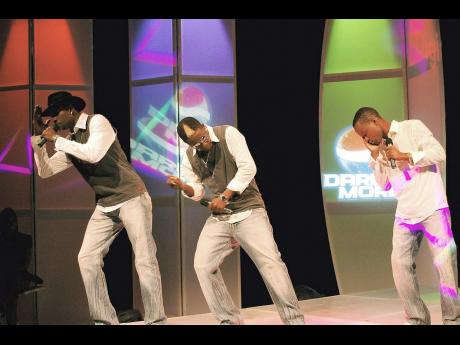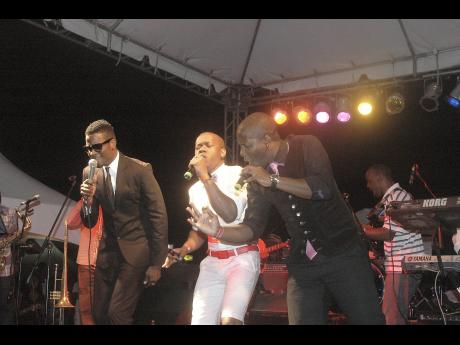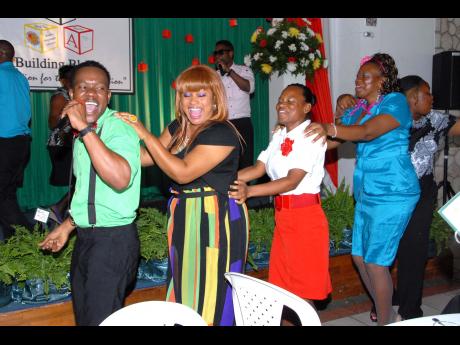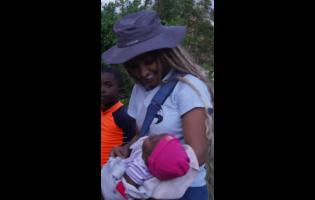One Third hoping for rebirth
After winning the Rising Stars competition, One Third suffered the pain of finding its niche.
Obeying the instructions of its management team, One Third released a mish-mash of music that ultimately confused its would-be fans.
Adrian Campbell, Al Johnson, and Miguel Walters faltered under the pressure of pleasing their audience, unsure of how to remain relevant after making their name performing other people's music.
"It was a rough, rough road, but there was a lot of excitement in it all the same," Adrian Campbell, a member of One Third told THE WEEKEND STAR.
"After we won the competition, everything happened so quickly. We were booked for shows all over Jamaica, the Caribbean, and the United States," Campbell said.
He claimed that the group had a minimum of three shows every day for the entire month following the win.
"We travelled all over Jamaica east, west, north, south! We had to be sleeping in the bus, hotels. It was crazy."
The group proudly recalls being the first Rising Stars winners to perform on Miami Jerk Festival and Irie Jamboree in New York.
More outstanding memories for One Third include the experience of sharing a stage with the lead singer of Toto and performing with The Chi-Lites.
The continued success of the group relied, of course, on its ability to stay relevant. Based on the nature of the show, with most acts covering popular songs, One Third's challenge became producing music that was original and unique.
"We were instructed by management to stay on the safe side of the way people perceived the group," said Campbell.
Deciding to follow the lead of their management, they tried to promote conscious music. In 2007, they released a music video for their conscious roots-rock single Candlelight, produced by Bobby Digital. The video included the first part of an R&B-styled love song called Baby Boo. Both songs were misses, inciting a confused reaction from their fans.
Desperate to please their Jamaican audience, they took the advice of another producer, who guided them to do a dancehall song, which they considered ultimately detrimental to the group.
"We were forced to do a song called Fattie. It [brought] somewhat of a bitter taste to some people, but then the dancehall embraced that song," said Campbell.
With the group cast into a circle of confusion, they struggled to identify their signature sound.
"One of the mistakes One Third made was I don't think we grasped the whole marketing and promotions situation with our songs. I don't think we marketed or promoted the songs fully," Al Johnson told THE WEEKEND STAR.
Since the competition, the group claims to have recorded enough music to produce two to three albums. "Some [recordings] were very impressive," said Campbell. "I think because we were doing so many different things, it left people wondering what exactly we are and what we do."
All three members have taken the initiative to improve their musicality, working on improving themselves individually in order to gain more knowledge of the industry to share with each other.
The group now identifies its music as reggae-soul.
"We try to keep our music international," said Johnson.
'JAMAICANNESS'
"We string elements of our 'Jamaicanness', of reggae music. We have records. We have been working with producers to try develop a consistent sound."
According to Miguel Walters, what keeps them together is their diversity and the ability to tap into each other's strengths.
"We've managed to stay together for the sole love of the music. The love of the music is why we stay together and the fact that we start out on a journey and we don't feel like we've fully accomplished everything that we set out to accomplish. We still on the journey. All One Third needs now is the right time," he said.







































